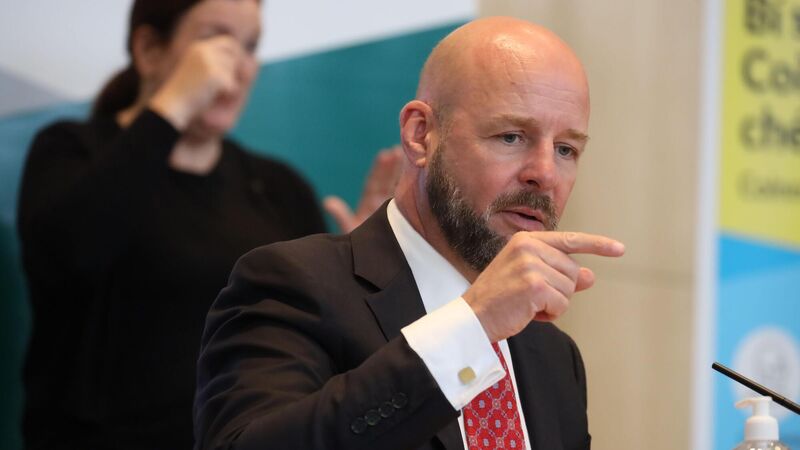Delta wave to peak in September, warns Nphet member

Professor Philip Nolan, Chair of the Irish Epidemiological Modelling Advisory Group at a Nphet press conference. Picture: Paddy Cummins /Collins Dublin
The chair of Nphet’s Epidemiological Modelling Advisory Group, Professor Philip Nolan, has warned that the peak of Delta cases has not yet been reached.
“It’s coming soon,” he told RTÉ radio’s Morning Ireland.










